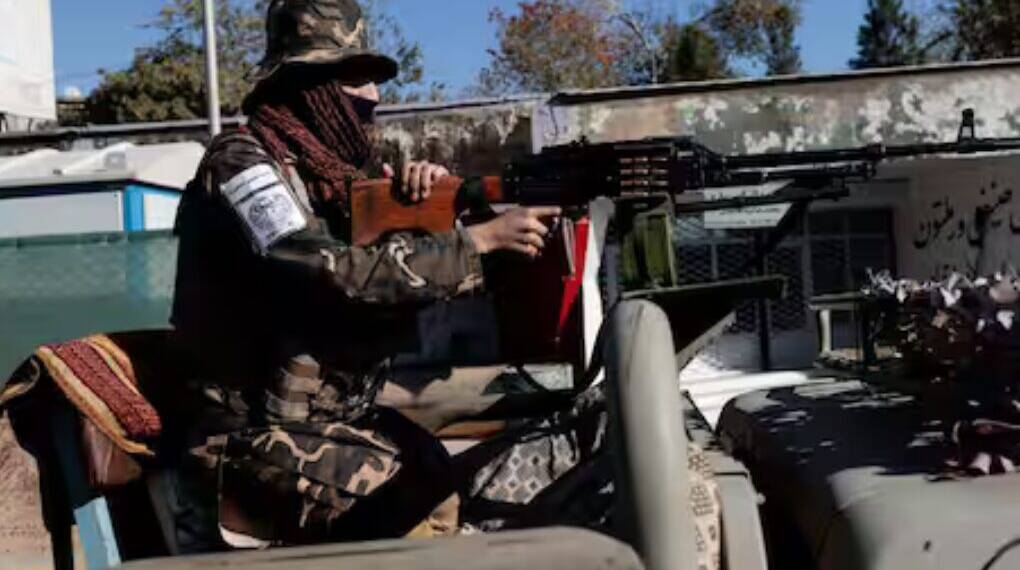After fresh Pakistani attacks inside Afghanistan’s Kandahar province, the Taliban claim to have killed several Pakistani soldiers, captured their posts and tanks, and paraded them in Afghan streets. The clashes mark the worst escalation along the Durand Line in years.
Fresh Border Escalation Rocks Afghanistan-Pakistan Ties
Tensions between Afghanistan and Pakistan have flared to dangerous new levels as fierce clashes erupted along the Durand Line, the disputed border dividing the two nations. The Taliban on Wednesday claimed they had successfully repelled Pakistani attacks and captured several posts, weapons, and tanks from Pakistani forces.
The violence followed what Afghan officials described as “unprovoked aggression” by Pakistan in the Spin Boldak district of Kandahar province. Taliban Spokesperson Zabihullah Mujahid stated that Pakistan launched attacks using both light and heavy weapons early Wednesday morning, killing at least 12 civilians and injuring more than 100 others.
Taliban’s Retaliation: ‘We Captured Tanks and Destroyed Their Installations’
Following the initial Pakistani assault, Taliban units reportedly launched a counteroffensive targeting multiple Pakistani positions along the border. Mujahid claimed that “several Pakistani aggressor soldiers were killed, their posts and centers were captured, weapons and tanks fell into the hands of Afghan forces, and most of their military installations were destroyed.”
To reinforce their claims, the Taliban released videos showing what appeared to be Pakistani tanks being driven through Afghan streets, celebrated as trophies of victory by Taliban fighters. The visuals quickly went viral across Afghan social media, portraying the confrontation as a symbolic triumph against Pakistan’s cross-border aggression.
Dozens Killed in Fierce Clashes
According to earlier Taliban reports, more than 58 Pakistani soldiers were killed and 20 military outposts destroyed in last week’s skirmishes following Pakistani airstrikes in Kabul. These airstrikes, which the Taliban blamed on Pakistan, had triggered widespread outrage and fueled anti-Pakistan sentiment within Afghanistan.
In the latest confrontation, intelligence sources cited by CNN-News18 confirmed that at least six Pakistani soldiers were killed near the Orakzai district’s Ghiljo area, where Taliban fighters stormed Pakistan’s Maahmoodzai post. The clashes also reportedly damaged Pakistan’s forward communication systems, disrupting coordination among its border units.
Communication Breakdown and Tactical Losses
Sources indicate that Pakistani communication lines along the Chaman–Spin Boldak border were hit by heavy artillery fire, further complicating Pakistan’s military response. “Wireless and field communication networks have been hit, hampering coordination among security units,” one intelligence officer said.
Meanwhile, the Tehrik-e-Taliban Pakistan (TTP) — ideologically aligned but distinct from the Afghan Taliban — has escalated attacks inside Khyber Pakhtunkhwa, targeting Pakistani troops with IEDs and ambush-style raids. The simultaneous offensives from both the TTP and Afghan Taliban have stretched Pakistan’s military across multiple fronts.
Pakistan Denies Defeat, Claims Counterattacks
Islamabad, however, has strongly denied the Taliban’s claims. In a statement carried by Dawn, the Inter-Services Public Relations (ISPR) — Pakistan’s military media wing — said that the attacks were “effectively repulsed” and described Taliban actions as “cowardly.”
According to Pakistan’s version, Afghan Taliban fighters launched assaults at four locations near Spin Boldak, but were met with “effective and proportionate response.” The ISPR claimed that 25–30 Taliban and TTP fighters were killed in retaliation, with eight of their posts and six tanks destroyed.
Pakistan also referred to the TTP as “Fitna-al-Khwarij”, its official term for the insurgent faction, reiterating that the country faces “joint aggression” from extremist elements operating out of Afghanistan.
Durand Line Dispute at the Core of Conflict
The latest clashes underscore the long-standing dispute over the Durand Line, the colonial-era border drawn by the British that the Taliban refuses to recognize as legitimate. Since retaking power in 2021, the Taliban government has repeatedly confronted Pakistan over fencing operations and cross-border raids, accusing Islamabad of violating Afghan sovereignty.
With both sides claiming heavy casualties and battlefield gains, the situation along the Afghanistan-Pakistan border appears to be spiraling toward a sustained military confrontation — one that could destabilize an already volatile region.
Regional Implications: A Brewing Border War?
Observers warn that the clashes could have far-reaching implications for South Asia’s security. The Taliban, emboldened by recent territorial successes, appear determined to assert control over border zones long influenced by Pakistan. Islamabad, facing economic distress and internal political instability, may find itself unable to sustain prolonged military engagement on multiple fronts.
If the violence continues to escalate, the Durand Line could once again become one of the world’s most dangerous flashpoints — reigniting decades-old tensions between Kabul and Islamabad, with regional powers watching closely.








